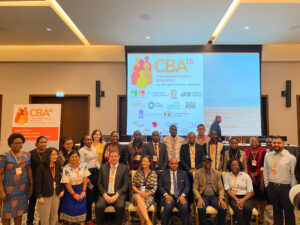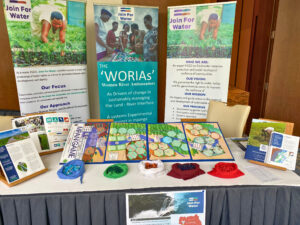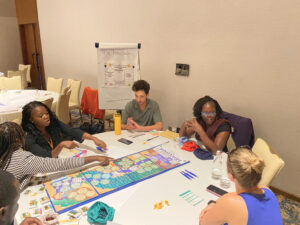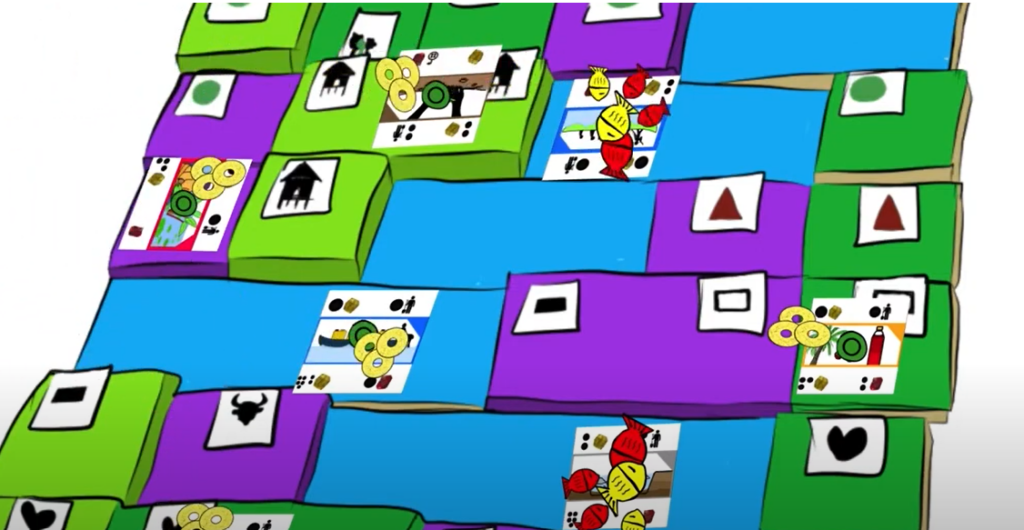From 6 to 9 May, a conference1 on “adaptation to climate change from local communities” took place in Arusha, Tanzania. Focusing on innovation, Join For Water presented 1 board game specially designed to engage the population in protecting water ecosystems.
The CBA conference is a platform for sharing the latest in local climate adaptation expertise and ways to put that expertise into practice. The International Institute for Environment and Development (IIED) has been organizing the International Conference on Community Based Adaptation to Climate Change (CBA) for nearly 20 years, in collaboration with several international and African partners in sustainable development, climate justice and others. Participants include NGOs, governments, donors, practitioners, the private sector, delegates from international institutions…
For Join For Water, it is an opportunity to share our expertise on freshwater resource protection and social-ecological resilience. The agenda of the conference fits in with Join for Water current political work in regards to climate adaptation. It is an opportunity to identify new partners or networks in national or international climate change efforts. The focus on community-based work connects with our work on sub-national participation, social engineering experience, and community-based work towards durability via local ownership/management.
Locally-led climate adaptation
In line with our approach and since 2022, Join For Water has been a member of FEBA2, Friends of Ecosystem-based Adaptation (FEBA), a global collaborative network of 100+ organizations with a shared interest in advancing awareness, understanding and uptake of nature-based solutions in adaptation and resilience efforts around the world.
Join For Water also signed the principles of LLA3, locally-led climate adaptation from WRI, the World Resources Institute. These principles include:
– Allow local communities to take part in decision-making
– Addressing structural inequalities faced by women, youth, children, people with disabilities, people who are displaced, Indigenous Peoples and marginalized ethnic groups
– Investing in long-term local capacity so that the community is not dependent on project-based resources
– …
Unravelling a complex story
In Arusha, Join For Water presents 2 projects that use a board game to engage in active participation of the local community.
The role-playing game “Challenges in the Ouémé Valley” is tailor-made for Ouémé Valley residents to engage them in the plans and activities to restore and protect water ecosystems and their services.
By visually mapping the area on a game board and having participants designate their activities at different periods of the year, a concrete representation of the situation and challenges is created. Via the game, players understand the complexity of ecosystem services and see links between their use and degradation. After several rounds of the game, the insights grow and the participants are ready to propose measures for restoration and conservation. Because the proposals come from the residents themselves, the chances of success only increase.
You can watch the video about this game here: Challenges in the Oueme Valley
Leaving no one behind
The game around the Mpanga river, in the Women River Ambassadors (WORIAs, Uganda) project, offers women the opportunity to take part in drawing up river basin plans. The river game simplifies complex topics such as climate change, adaptation, ecosystem decline, etc. and brings everyone on board. And that is important, because often the most vulnerable groups have no say in finding solutions, even though they are often the hardest hit by climate change. Now women in the Mpanga area, can effectively participate in planning and implementing activities that benefit them and nature.
We look forward to inspiring ideas and new contacts at this conference.
—
1) CBA18-conference: read more.
2) FEBA = Friends of EbA, Ecosystem-based Adaptations: read more.
3) LLA = Locally Led Adaptation: read more.




